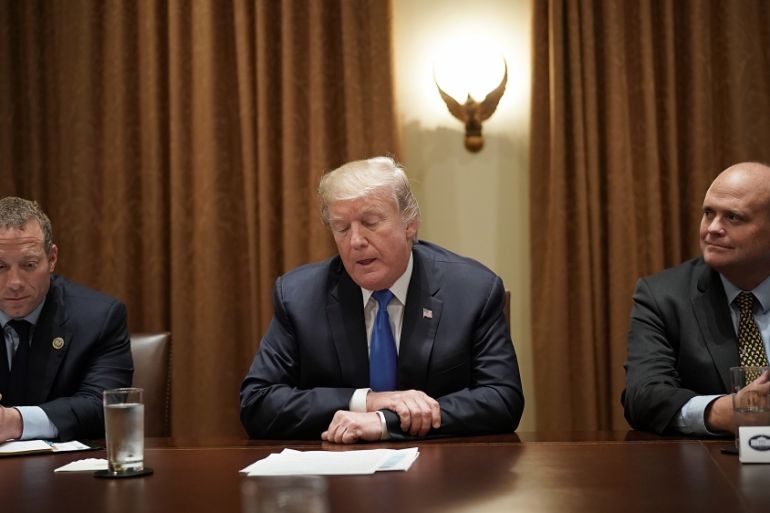Trump blocks Chinese purchase of Lattice Semiconductor
Decision follows ruling by federal panel against proposed $1.3bn deal between Lattice Semiconductor and Canyon Bridge.

US President Donald Trump has blocked a Chinese government-financed firm’s acquisition of an Oregon semiconductor maker on national security grounds.
A federal panel that reviews foreign investment in the US for possible security threats ruled against the proposed $1.3bn purchase last week of Lattice Semiconductor, a Portland, Oregon-based company.
Keep reading
list of 4 itemsChina’s Xi Jinping begins first Europe tour in five years in France
A good, steady job? India election turns spotlight on a dream gone sour
Photos: Iran’s unravelling carpet sales
In his executive order on Wednesday, Trump said that Lattice and Canyon Bridge “shall take all steps necessary to fully and permanently abandon the proposed transaction”, within 30 days.
“Credible evidence leads me to believe” the buyers of Lattice “might take action that threatens to impair the national security of the United States”.
Following Trump’s announcement, Lattice said it was cancelling the proposed sale.
Trump’s announcement comes at a sensitive time for US-China relations.
Relations are already strained between Washington and Beijing over trade and North Korea, and the Chinese Communist Party is preparing to hold its once-every-five-years congress in October.
Defence concerns
US regulatory scrutiny grew after Reuters news agency reported in November that Canyon Bridge was funded partly by cash from China’s central government and had indirect links to its space programme.
US defence officials subsequently raised concerns about the Lattice acquisition by a firm backed by the Chinese government.
|
|
Lattice makes chips known as field-programmable gate arrays, which allow companies to put their own software on silicon chips for different uses.
It no longer sells chips to the US military, but its two biggest rivals, Xilinx Inc and Intel Corp’s Altera, do.
A statement from the White House press secretary cited the importance of “semiconductor supply chain integrity” to US security, the Chinese government’s role in supporting the transaction and the potential transfer of intellectual property to a foreign buyer.
Trump has expressed concern about the status of US manufacturing and its ability to meet national security needs.
In July, he issued an order for a review to be led by the defence department.
He also has asked the commerce department to look into whether to raise tariffs on imported steel on national security grounds.
Eight-month campaign
Lattice manufactures a relatively low-tech class of programmable computer chips that can be adapted for a variety of uses.
It had 1,000 employees worldwide at the end of the last year, but that number dwindled after Lattice sold a division in India and laid off workers.
Trump’s decision chimes with the views of the Committee on Foreign Investment in the US (CFIUS), which scrutinises deals for potential national security threats.
|
|
Canyon Bridge and Lattice spent eight months trying in vain to persuade CFIUS to clear the acquisition.
Both companies said the deal did not pose any security risks and Canyon Bridge had told CFIUS it would double the number of Lattice’s employees in a bid to make the deal more palatable, according to people familiar with the matter.
They declined to be identified because details of the regulatory process are confidential.
Trump’s decision ends a prolonged campaign by Canyon Bridge and Lattice to seal the deal.
It was the first such deal to hit Trump’s desk and only the fourth time in three decades that an acquisition was put in front of a president after CFIUS recommended against it.
Chinese companies are on a global buying spree to acquire technology and brands.
Most acquisitions in the US and Europe go through without incident, but some purchases of high-tech companies have prompted criticism they might represent security threats or the loss of important national assets.